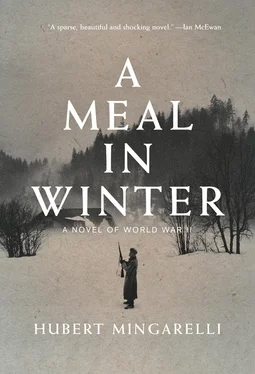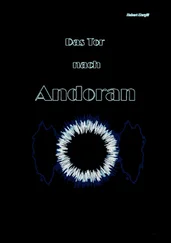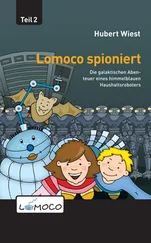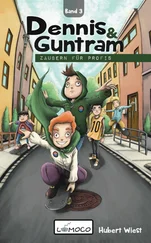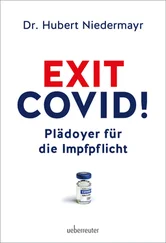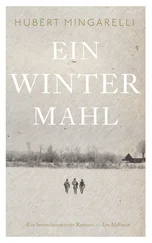‘How far can you look?’ he asked me. ‘Tomorrow? The day after tomorrow?’
Emmerich was leaning over and watching me, awaiting my response. I shook my head slowly, not knowing what to say, not knowing who was right. As I didn’t reply, Emmerich said to me in a gentle, sad voice, ‘You were lucky to go on your tram last night. For me, the nights are as bad as the days. Sometimes they’re worse.’
I tried to smile at him, then lowered my eyes.
You see? I was right. We should keep our dreams to ourselves. We should never talk about them. There had not been even the shadow of a reproach in Emmerich’s voice, but I still felt bad that I was luckier than him.
‘I’m not always on a tram,’ I said, trying to keep my voice light. ‘That was the first time.’
‘I’ve never been on one,’ Emmerich murmured.
Though Bauer was silent, I could see he was frowning, closing in on himself. He pushed the saucepan away, and I saw that there was still some cornmeal left at the bottom and on the sides. The Pole saw this too, and leaned down. He said something, with a scowl, and Bauer shot him a look full of hatred. The Pole mirrored his expression. But he didn’t touch the saucepan.
Some time passed. Now that my hunger was gone, tiredness took its place. I half-closed my eyes. I wanted to go home. But home was too far away. I would have needed more time, and more imagination. So I stayed there, next to Emmerich and Bauer, in that little Polish house that had scared us when we first found it.
Night had fallen behind the only window. Had it not been for the fire in the stove, we would have been sitting in the dark. And I felt, more intensely than I usually did, that wherever we were — Emmerich, Bauer and I — that was home. It was warm, and the firelight was pleasant. So it was a shame, I thought a little bitterly, that Emmerich had chosen this particular moment to torture himself.
Now he had finished eating, the Jew seemed unsure whether to go back to the storeroom or remain standing next to the table. I wasn’t sure what he should do either. He licked his lips where the melted lard had left traces of white.
The Pole sniffed loudly, looked around, and went suddenly towards the stove. We heard him moving around, and when he reappeared at the table, he was wearing his fur hood again, his scarf wound tight around his neck and his coat buttoned up. He took his large green flask and put it back in his pocket. Picking up his wooden spoon, he put it in the mug Bauer had lent him and pushed it towards him, smiling exaggeratedly at him with his toothless mouth.
Then he said something to us in his language, before walking towards the door and calling his dog. ‘Fuck off and die yourself,’ Bauer replied. ‘And hurry up about it.’
The door banged shut. The icy air swept over us for a moment, and we shivered. Then the warmth of the fire returned, and we felt at home once again. But we had remembered how it felt to be cold.
Grabbing hold of his mug, Bauer thrust it up in the air quickly as though he was going to throw it away. But the mug stayed in his hand. It was the Pole’s wooden spoon that flew over the table and landed on the other side of the room. The Jew watched this, then turned back towards us, and for a moment it looked as if he was about to smile. We saw a glimmer in his eyes, which relaxed his face. The rings around his young eyes disappeared a little bit. Emmerich looked at him for what seemed like forever.
Bauer, still holding his mug, breathed deeply, the way he does sometimes when he’s asleep. I saw his chest rise and fall. I listened to his breathing and the wood burning in the stove. I heard it all as though it was coming from my own chest.
‘Tomorrow morning,’ Bauer said suddenly, ‘Graaf will hit the iron outside. And if we haven’t taken him back with us, we won’t be able to get out of it. If there are any left to kill, we’ll have to kill them.’
He let go of the mug and pushed it away. Crossing his hands behind the back of his neck, he asked without looking at anyone, ‘Yes or no?’
We didn’t reply. He turned towards me.
‘Yes,’ I said.
Then, without looking at Emmerich, he said, ‘Yes or no?’
Like me, Emmerich could only respond with the simple truth: that, if we we went back empty-handed, Graaf, our lieutenant, would refuse to let us leave the following day, and we would be obliged to take part in the shootings.
‘Yes,’ he said.
Bauer removed his hands from the back of his neck and put them in the air in front of him, to say that we all thought the same thing, so what was the point in talking about it any longer. But Emmerich’s yes floated, fragile and uncertain, and he whispered, ‘I’m telling you, Bauer. One day, I will have need of him. I would rather kill some tomorrow if it means I’ll be able to remember this one when I need to. Even now, tonight, it’ll make me feel better.’
He stopped talking, though not for long. Without looking at us, he added: ‘You too, you’ll have need of him.’
Bauer took his time lighting a cigarette, then replied: ‘No, not me. One wouldn’t be enough.’
He blew out smoke and muttered to himself, ‘Just one!’
He smoked a bit more, and then, as if casually, he said, ‘You were the one who found him, Emmerich.’
‘What difference does that make?’ Emmerich asked, earnestly. ‘Why?’
In a resigned voice, innocent of any malice, Bauer replied: ‘It’s no use finding him and then crying about it afterwards.’
‘No, no, no,’ Emmerich started, endlessly it seemed, because he didn’t add anything, and neither did we. And the Jew, probably disturbed by this silence, and with nothing left to keep him there, went back to sit in the storeroom. He moved silently, as light as a bird.
It was the fire dying in the stove that pulled us out of that silence. The cold knocked two or three times at our backs, as if it were knocking on a door. We shivered, and moved about on the bench, remembering that we had to go.
And then Bauer said what I knew he would say, the words I’d been waiting for and dreading. He turned slightly towards me, hesitated for a moment, and finally asked me what I thought we should do with the Jew. Now I had the casting vote, given that he and Emmerich couldn’t agree.
As if I were still hesitating, I said, ‘Hang on.’
I leaned over so I could see Emmerich. He was staring at the table, motionless. He turned towards me, blinked, and stared back down at the table again.
Unfortunately for me, I remembered, just then, the interminable look he had given the Jew a bit earlier. I understood that look now. I knew who Emmerich had seen, secretly, when he looked through the Jew, and who, in his imagination, we would be taking back or letting go. And now, this very evening, I had the power to make him feel better. I could help him out. I could understand, better than ever, his love and concern for his son, and I could help him to worry a bit less about him. But I’d had enough, and thinking of tomorrow — imagining Graaf preventing us leaving — was making me feel sick. And even if Emmerich hadn’t lied to us, if it really had been the Jew he wanted to save, Bauer was right anyway. My God, how could he think that one Jew would be enough to make us feel better when we dreamed of him at night?
So I gave my opinion of what to do with the Jew, knowing that I was going to break Emmerich’s soul, but hoping that it wouldn’t be broken for long. Just for this evening. For one night only. I prayed that Emmerich’s broken heart and broken soul would mend quickly, and that he would forget all of this, just like all the rest.
But I wouldn’t have done that, I swear, had I known what chance had in store for us, had I known what awaited Emmerich in the spring, not far from here, under the bridge in Galicia. And that the only bravery Bauer and I would show was in not looking away while he died.
Читать дальше
